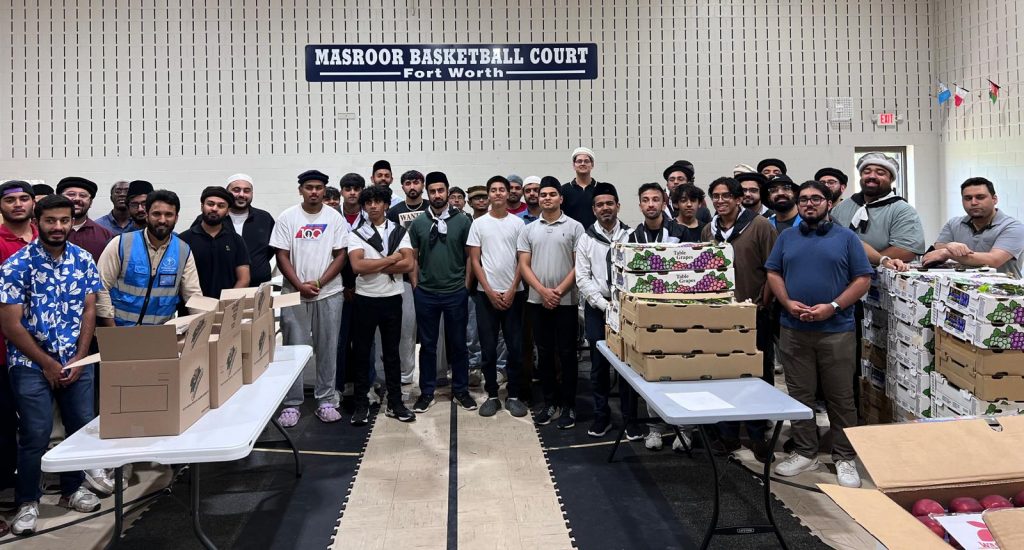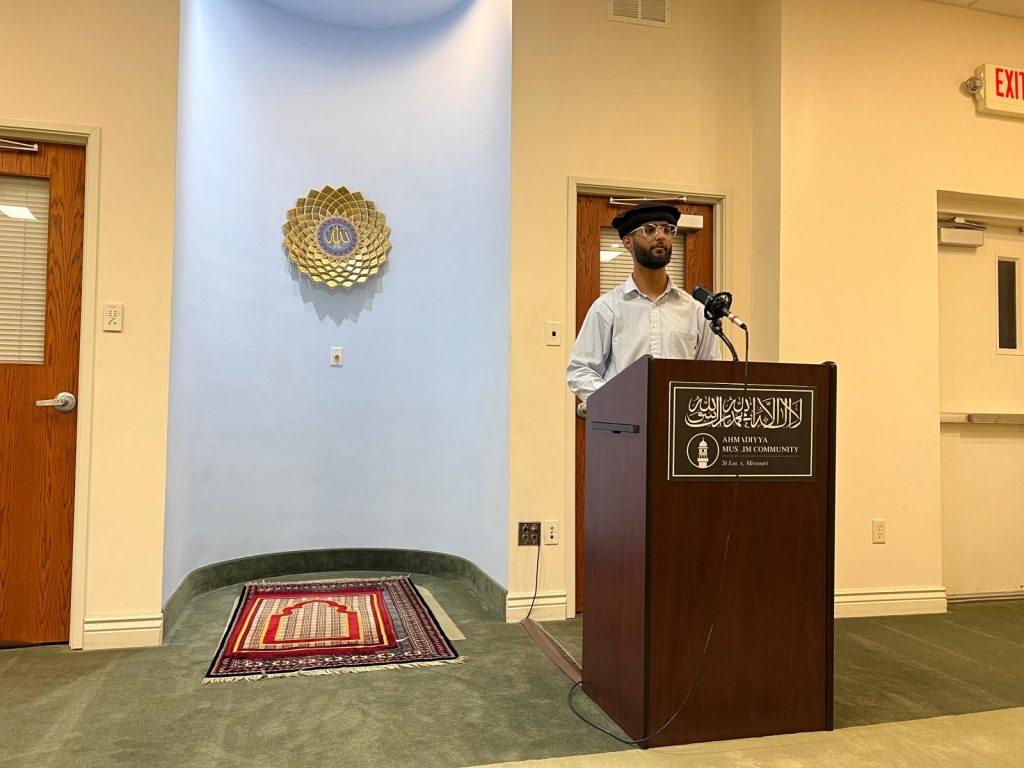
As he travels on his God-given path, a student of Jamia Ahmadiyya Canada encounters well-wishers who grant him advice, aiding him in his journey towards success. The best advice, however, stems from that which those advisors themselves act upon and implement in their own lives, and who show with their example how to fulfill one’s Waqf in the best manner.
What if one was told, “Make yourself uncomfortable”?
What does this entail?
How does one implement this?
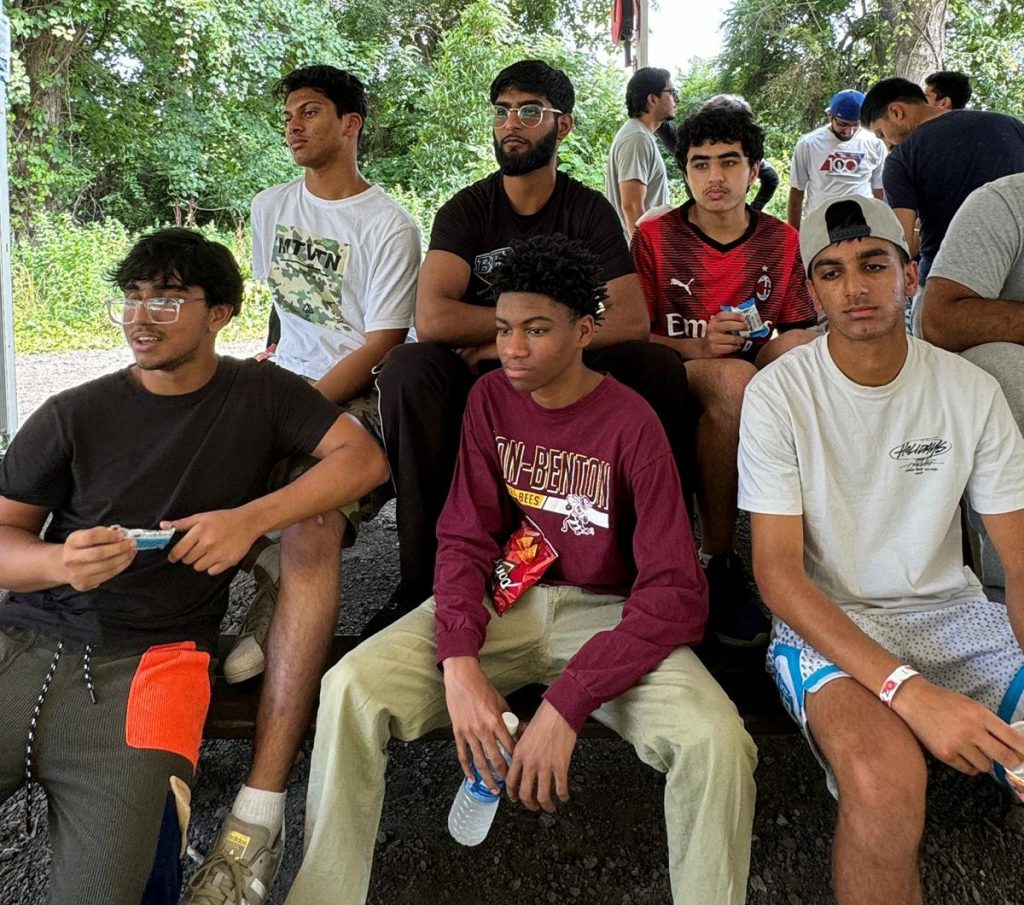
Maryland
With this in the back of my mind, the first journey of my Waqf-e-Arzi began. My Waqf-e-Arzi was to assist in the National Youth Camp at Baitur Rahman in Silver Spring, Maryland, in the blessed company of Khuddam who gave up ten days of their summer to learn more about their faith and increase their discipline in practicing it. After previously attending the camp as a student twice and seeing the benefits that I derived from it, I felt honored to come for a third time as a mentor. I tried to follow the example set by the Jamia seniors who used to be my mentors and actively tried to push us to the best of their abilities.
In camps such as these, it is imperative that you win their trust of the Khuddam without compromising your own identity. The best way to achieve this is to convey what rights and wrongs they are doing without shaming or demeaning them. Otherwise, how would you gain their trust and why would they look to you for help if all they receive is criticism? Thus, establishing a bond of friendship with them is essential (for example, play basketball with them and engage in conversation with them), and then they will naturally follow your example and experience moral and spiritual growth.
By the grace of Allah, this tarbiyati camp was a great success. Under the leadership of Murabbi Umar Nayyar Sahib, National Nazim Tarbiyyat Khuddamul Ahmadiyya USA, us Jamia students learned how to serve as mentors who could truly guide the students attending the camp. With his guidance, we were led to believe that if “making yourself uncomfortable” meant tackling taboo topics, sacrificing sleep, and making bonds with strangers to help them on their spiritual journey, then was it not better to be uncomfortable?
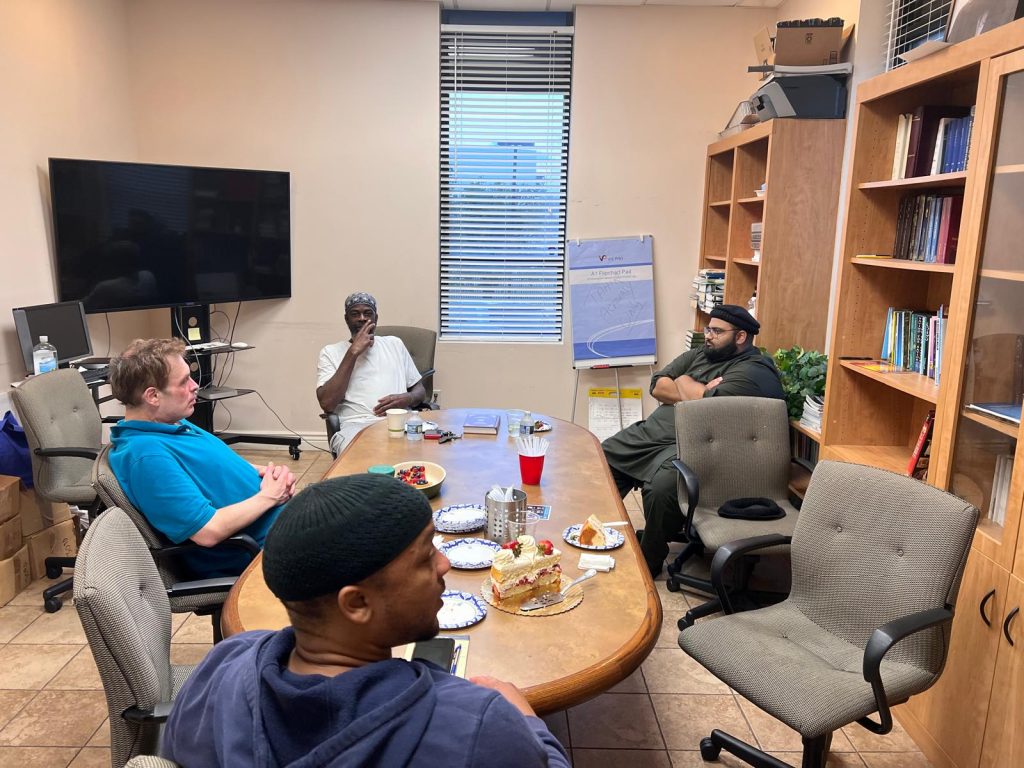
Missouri
With the Murabbi of St. Louis, Missouri, Murabbi Asjad Amjad Sahib, I made myself uncomfortable by adding the pressure and expectations I otherwise would not experience as a student. This trip stimulated the struggles that a Murabbi in the field faces, especially since St. Louis is known for its high crime rate. Nonetheless, Allah the Almighty showered me in His protection and kept me safe from all harm during my Waqf-e-Arzi, Alhamdulillah.
In St. Louis, the local Jama’at members treated me with incredible hospitality, which made it very comfortable for me to interact with people who were otherwise strangers to me. While talking to a Jama’at member, we realized that in no other religion can you stand side by side with someone from a completely different background and race and immediately feel as if you were brothers from the same mother.
When I wasn’t leading the prayers, giving dars, or participating in the events held, I tried my best to have conversations and interact with local Jamaat members, something I wouldn’t have done had I remained in the guest house during my “free time.”
I quickly learned what it took to live in one of the murder capitals of America and still be thankful. By the grace of God, I saw men of God who strove their absolute best to please their master with every fiber of their being. I felt incredibly thankful to God for giving me the opportunity to learn so much from such pious individuals. We all hear and read stories of companions of the Holy Prophet (peace and blessings of Allah be upon him) and the Promised Messiah (peace be upon him). However, we don’t open our eyes enough to see that even today, people sacrifice in the same ways to please God. Until I went to St. Louis, I had yet to see roses shining amongst weeds, greenery sprouting from concrete. I saw men who strove to find a way to shine in the light of their Maker, completely unfazed with the storms they faced, which served only to strengthen their faith and conviction in God.
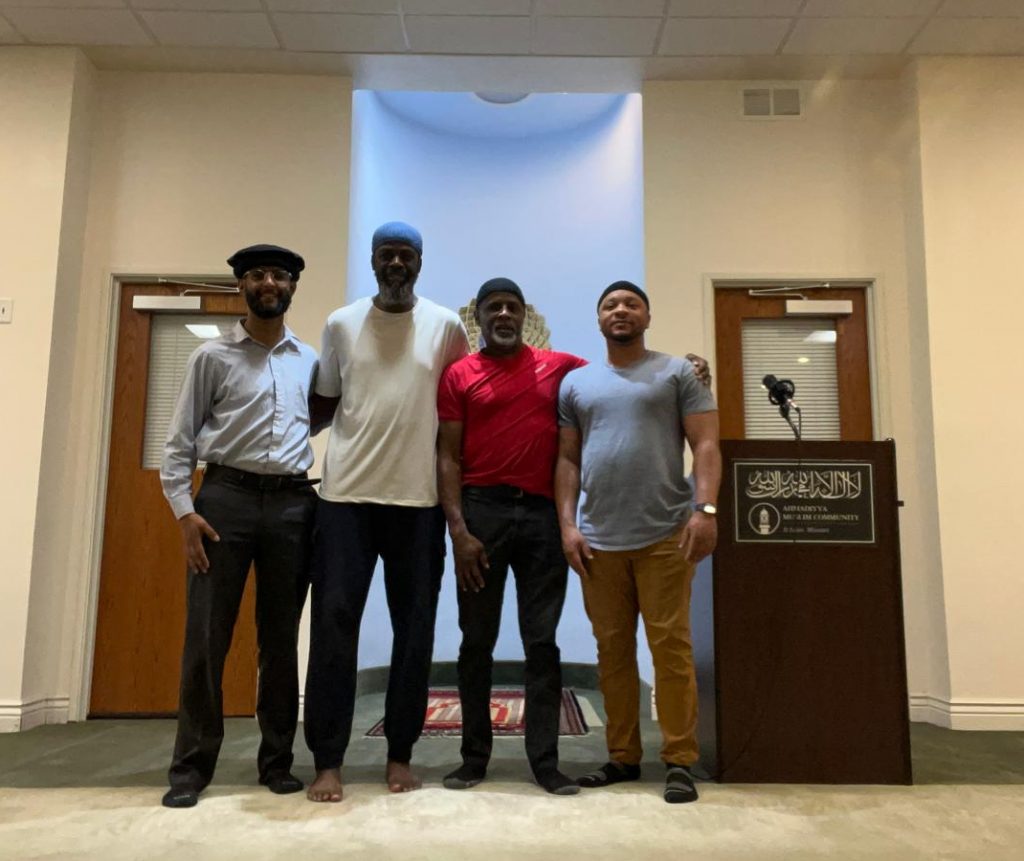
Dallas
I finally made my way to do Waqf-e-Arzi with the man who told me, “Make yourself uncomfortable” in the first place.
In Dallas, Texas, even though Murabbi Syed Adil Ahmad Sahib had already informed me of our duties, I was still taken aback by the sheer amount of work laid before me. This particular trip was exciting because diving into intense work, while being a challenge, grants a certain sense of enjoyment which I felt throughout my stay.
In Dallas, after Fajr and dars, if no Jama’at member needed the attention of Murabbi Sahib, we would read Fiqah Ahmadiyya together for an hour so I could learn more about Islamic Jurisprudence and prepare myself for any questions that Jama’at members may ask me. The book was read together aloud as if it was being presented, so I was able to both improve my Urdu reading as well as fine-tune my presentation skills. We would then go to the gym to work out in obedience to Huzoor’s (may Allah be his Helper) guidance to Murabbian regarding maintaining one’s health through regular exercise. After this, we would come back and Murabbi Sahib would check up on his family and help any Jama’at member as needed. During this time, I would try to study the translation of the Holy Quran and try to get to know the mosque’s members better.
Despite being given tasks by the Jama’at and Markaz, as a field missionary, you are mostly only as busy as you make yourself. Therefore, it is your responsibility to make your own schedule and ensure that all your time is spent in carrying out the mission of Islam Ahmadiyyat. When you think you don’t have time for something, the reality is that you failed to make time for it because you gave that time elsewhere. As a Murabbi, you are held accountable for the moral and spiritual standard of your Jama’at. If you are hard-working, so will your Jama’at, and if you become complacent, so will your Jama’at.
After Zuhr, Murabbi Sahib’s work varied greatly. One such activity was learning how to extend a mosque’s property or apply to make one in the first place. Another was holding a “Salat and brotherhood” event. One of the lessons I am most thankful for is balancing the time you need for personal tasks and tasks you need to get done as a life devotee or head of a spiritual body.
Additionally, I learned a great deal during the regional Ijtema, which we were a part of. While transcribing the Qaideen meeting, the Jama’at system was presented beautifully, as well as what it takes to achieve anything pertaining to tabligh, tarbiyyat, waqar-e-amal, etc. These lessons were shared at almost an atomic level. The way to complete these tasks in these departments was systematically broken down, and the way to success laid quite literally before all members. Seeing this practical example of the system of Jama’at, I was very surprised with its efficiency when everyone is trusted with a job and given space to work with checks set in place – not to discipline, but to help out if needed. Moreover, I learned that a healthy workplace is vital to success, yielding unexpectedly fruitful gains if headed by someone genuinely open to suggestions and criticism.
I immensely enjoyed the time and experiences God granted me this summer as I served under people much better than I, who will achieve even more success as time goes on, Insha’Allah. May Allah enable all students of Jamia Ahmadiyya Canada to follow in the footsteps of such successful missionaries, Ameen.
